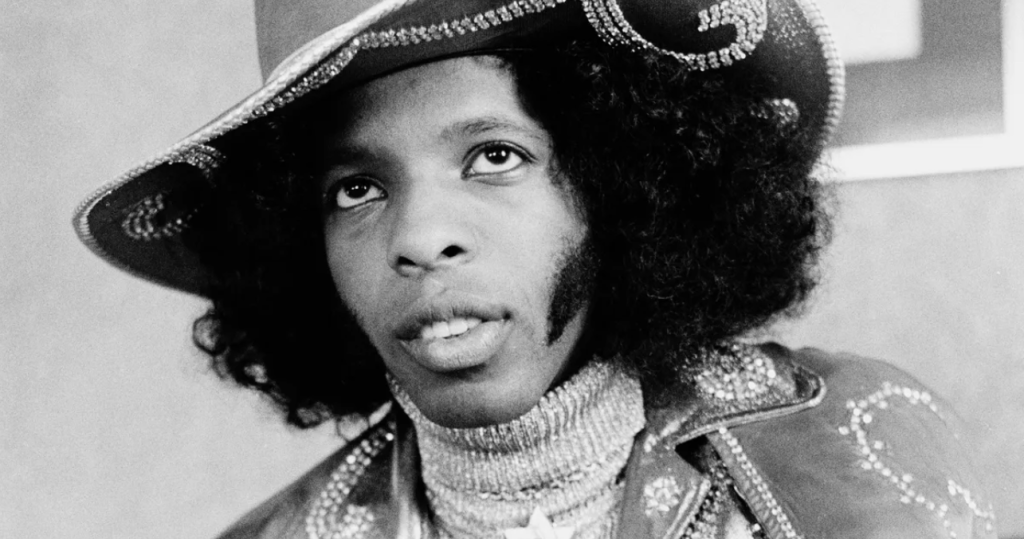It’s a bittersweet twist of fate—Sly Stone, the legendary frontman of Sly & The Family Stone, passed away on June 9 at the age of 82. Almost instantly, his music found its way back into people’s lives. Within 48 hours, streams of the band’s catalog in the U.S. surged by a staggering 563%. Was it a farewell? A tribute? Or simply a way for fans—old and new—to reconnect with something real in a world that sometimes feels a little too virtual?
Back in the late ’60s, this was a band that didn’t just make music—they made a statement. With a racially diverse lineup and a sound that fused funk, soul, rock, and unapologetic idealism, Sly & The Family Stone were more than chart-toppers. They were the pulse of an era. Tracks like “Everyday People,” “Stand!” and “Thank You (Falettinme Be Mice Elf Agin)” didn’t just play at parties—they echoed in protests, in homes, in people’s hearts.
Luminate reported that in the two days following Sly’s death, the group’s catalog clocked 2.5 million on-demand audio streams in the U.S., up from just 385,000 the previous week. One of my friends, Catherine, a Boston-based music professor, sent me a voice message that pretty much captured it all: “I was brewing coffee when Spotify started playing ‘Thank You…’ out of nowhere. I just stood there and cried.”
She told me that when she was 17, she met her future husband at a Black culture festival where that exact song was playing. “It wasn’t just background music,” she said. “It was the atmosphere.”
And that’s the thing about music. It’s not just about melody—it’s about memory.
While grief and nostalgia dominated one part of the charts, heartbreak played its own tune elsewhere. Coldplay’s “Sparks,” a track from their 2000 debut Parachutes, suddenly re-entered the streaming conversation following reports of lead singer Chris Martin’s breakup with actress Dakota Johnson. The two had been together, off and on, for nearly eight years. Neither has officially confirmed the split, but Chris’s performance of “Sparks” during their ongoing stadium tour said more than any tabloid ever could.
Armed with just an acoustic guitar and a single spotlight, Martin sang those haunting words:
“I know I was wrong / I won’t let you down / Oh yes I will, yes I will.”
The emotion was palpable—and TikTok noticed. Videos zooming in on Martin’s pained expression during that verse went viral, with captions like “My husband is heartbroken on stage.” Between June 9–10 alone, the song was streamed over 1.5 million times in the U.S., a 64% jump from the previous week.
A 22-year-old TikTok creator from Austin posted a tearful video after the concert, saying, “This was the song that played when I broke up with my high school boyfriend. Hearing it live just broke me open again.”
Maybe music doesn’t heal us—but it brings us back to the places we left pieces of ourselves. And that’s healing enough.
On a different wavelength, West Coast rapper YG made a splashy return with his summer single “Hollywood,” featuring Shoreline Mafia. With sharp lyrics aimed at Joey Bada$$ and a bouncy, club-ready beat, the track quickly took over TikTok dance challenges and late-night playlists. Official on-demand streams jumped from 3.28 million in its debut week to over 5 million the next—a 53.5% spike.
Leo, a dance studio owner in San Diego, told me the song has become their go-to warm-up track. “You don’t always need a deep song,” he said. “Sometimes you just need something that changes your heartbeat.”
In his words, YG isn’t just dropping bars—he’s injecting adrenaline into a summer that badly needed rhythm.
Meanwhile, Beyoncé is proving—once again—that old songs never really die. Her 2016 track “All Night,” the closing ballad on Lemonade, found new life thanks to a viral remix on TikTok. User @cowboydanny layered vocals from Bey’s newer song “Tyrant” over the instrumental of “All Night,” connecting both songs’ themes of redemption and resilience.

The remix quickly gained traction, reaching over a million views on TikTok and sparking over 35,000 posts using the audio. On YouTube, the fan-made mashup racked up close to 640,000 views. The ripple effect was felt on streaming platforms as well—between April 11–17, the song clocked nearly 940,000 U.S. streams. Six weeks later, that number hit 1.65 million, a 76% surge.
Interestingly, Beyoncé hasn’t even performed “All Night” on her Cowboy Carter tour—yet the song is charting again, powered entirely by fan love, algorithmic magic, and a little bit of internet serendipity.
This isn’t just nostalgia—it’s recontextualization. It’s a new generation discovering Lemonade not as a 2016 album, but as a living, breathing experience in 2025.
It makes you wonder: who decides when a song is “old,” anyway?
These aren’t isolated cases. This is a pattern. A movement. We’re watching songs from different decades—some joyous, some painful, some just plain groovy—become relevant again because they still speak to something inside us. They remind us of our past selves, or give shape to feelings we can’t yet name. Sometimes, they even help us imagine a better version of ourselves.

In 2025, the charts aren’t just ruled by what’s new—they’re ruled by what’s real.
And sometimes, the most real thing in the world is pressing play on a song you didn’t know you needed—until it starts playing.
